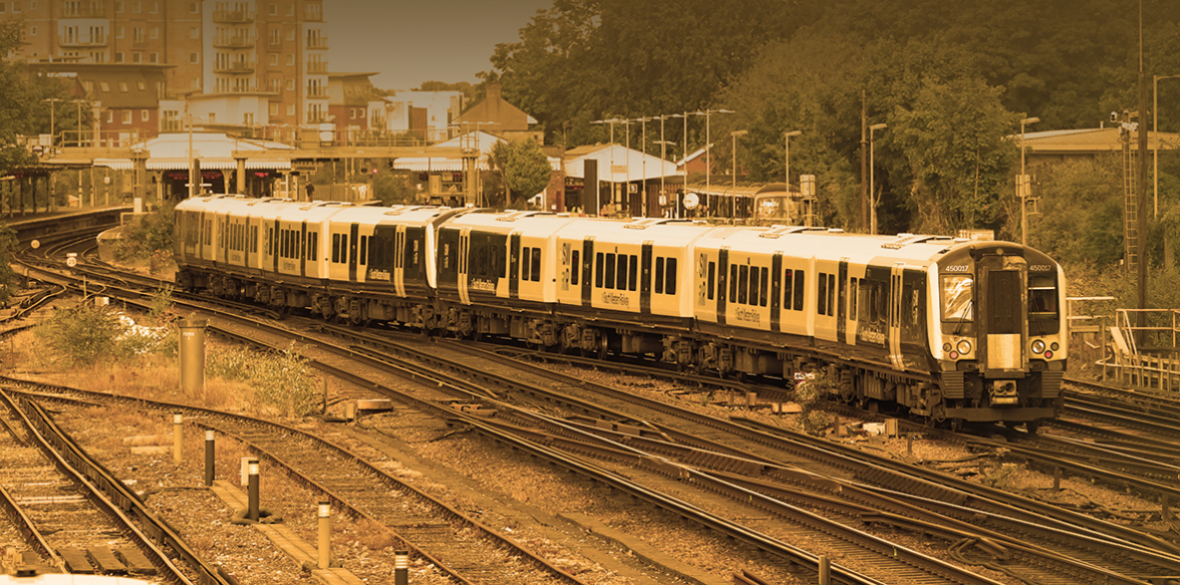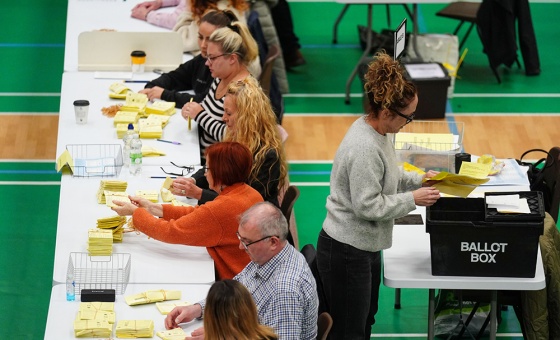This is the last article you can read this month
You can read more article this month
You can read more articles this month
Sorry your limit is up for this month
Reset on:
Please help support the Morning Star by subscribing here
EVERSHOLT is one of the “rolling stock companies” or “Roscos” created when British Rail was privatised — like Porterbrook, which I wrote about a few weeks ago. These private companies own the trains which roll on British railways.
Eversholt’s accounts, published in April this year, show that in 2020 and 2021, the years of the pandemic when the rail industry was entirely dependent on a vast, publicly funded bailout to keep running, the firm paid a total dividend of £83 million.
The money from Britain’s railways was shunted to its owners, based in Luxembourg.
Eversholt’s accounts helpfully explain how this came to be.
They say: “Until the mid-1990s, British Rail, a government entity, owned all rail operations in the UK.
“British Rail was privatised in the mid-1990s and the rail industry was separated into three distinct sectors, rolling stock, operating companies and infrastructure (eg track).
“[Eversholt] is one of the three rolling stock leasing companies that were established at the time of privatisation to own and lease passenger rolling stock to operating companies.”
To try and create the illusion of vigorous competition when it broke up British Rail, John Major’s government separated rail into different companies, handing over the “rolling stock” — the carriages — to three companies, including Eversholt.
Most rail passengers probably imagine that if they are riding Southeastern railways or Govia or Abellio, that the train firm owns the carriages.
But these firms usually lease the trains from Eversholt or another Rosco.
Instead of creating competition, this has created an easy way for big investors to squeeze cash out of rail.
Right from the beginning, the Roscos made their owners rich — even Tony Blair complained of profiteering by Eversholt’s owners.
Eversholt was such a money machine that it was first bought by British Rail managers, then sold to the Midland Bank.
In 1999, Blairite MP Chris Leslie complained to Parliament that investors “made an absolute killing out of privatisation,” singling out how one former British Rail manager “invested £110,000 as his initial stake and sold the company on only 12 months later for a personal profit of £15.9m.”
Blair and his MPs complained about profiteering at Eversholt — but by not renationalising rail. Eversholt has been sold and resold since then, as investors see owning Roscos as a money-maker.
Since 2014 Eversholt has been owned by Hong Kong billionaire Li Ka-shing and his companies.
In 2020, the loss of passengers due to Covid meant the government ripped up privatisation agreements with the rail operators and instead just paid them a management fee to keep trains moving.
It was only this public bailout that kept rail moving during the pandemic. But this did not stop private profiteering by Eversholt.
Eversholt’s accounts say that Covid-19 was one of the “principal risks” to the company on their “risk register.”
But they said that even though Covid slashed passenger numbers, it wasn’t really a risk at all — it was “largely mitigated” by government bailouts.
Eversholt says: “The group is principally exposed to the impacts of Covid-19 through the impact of passenger volume decline.
“This exposure is largely mitigated in the short term by terms of operating leases for the group’s rolling stock: the commitment of the government to ensure that rail services are maintained (including taking fare revenue risk).”
So the government takes “fare revenue risk” — the public-sector bailout will cover for loss of passenger revenue.
Eversholt add that its ultimate risk is “mitigated” by “the role of the of the OLR in maintaining passenger operations in the event of a train operating company failure.”
This means the Department of Transport, via its in-house rail firm OLR Holdings, will take over any train operating company that goes bust due to Covid.
So government support will make sure train leasing cash keeps flowing to Eversholt. The railways might only be operating on public cash, but Eversholt is making handsome private profits.
The accounts show that Eversholt made £78.1m profits in 2021 and £18.6m profit in 2020.
Eversholt paid big dividends, which are sent to its parent company, which is called UK Rails SARL, although it is based in Luxembourg, not Britain.
Money travels along this route: Eversholt UK Rails (Holding) Limited pays a dividend to Eversholt UK Rails Limited, which then pays on the dividend to its Luxembourg owners.
In 2020 Eversholt UK Rails Limited paid a dividend of £41.8m. In 2021 it paid a dividend of £41.5m — that’s £83.3m going to investors during the Covid bailout.
The firm also paid multimillion “finance expenses” to Luxembourg: big investors often extract money by lending money to the companies they own then charging them interest.
In 2021 Eversholt paid £47.9m interest to its Luxembourg owners and in 2020 it paid £48m. During the pandemic, a total £179.2m flowed to Eversholt’s Luxembourg owner, a Li Ka-shing company.
The top staff in the British firm also did well. The highest-paid director — presumably CEO Mary Kenny — was paid £938,000 in 2021. That’s a very slight drop on the £954,000 she was paid in 2020.
The Conservative government, faced with the obvious dysfunction of the Britain’s privatised rail system, is promising reform. But Eversholt is not worried. The government intends to launch a new Great British Railways some time in 2024.
Eversholt says: “It is expected that rolling stock will continue to be provided by third party organisations, such as Eversholt Rail, to private train operators.
“The proposed reforms do not assume any direct change to the current industry model for procurement of train fleets and maintenance by independent train-leasing companies.”
The only change will be: “Revenue risk will be borne by Great British Railways and not the private-sector operators.” So again, the public sector will bear the risk, private firms like Eversholt will get the reward.
I asked Eversholt if its big profits and dividends during the pandemic bailout could be justified, but it said it did not wish to respond.











